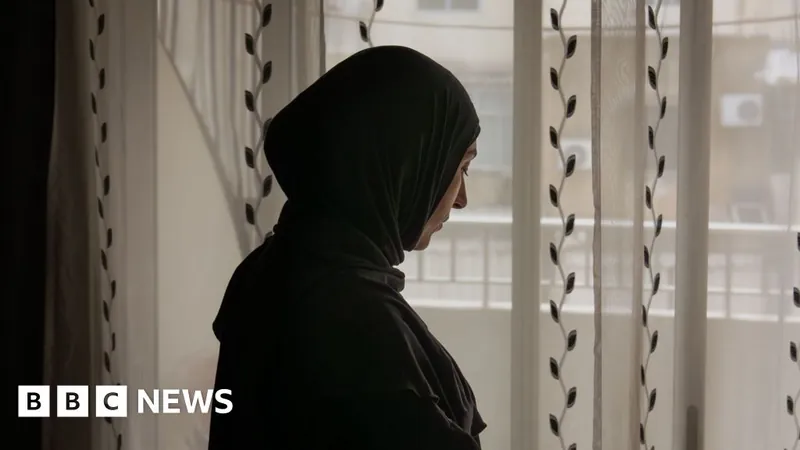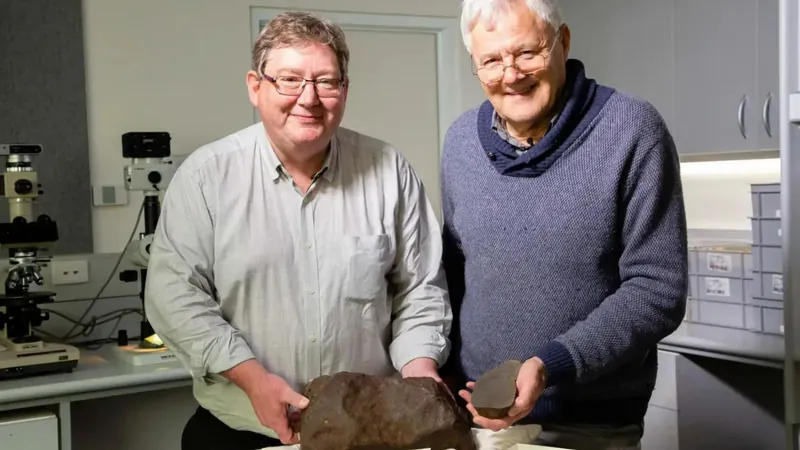
The Haunting Tale of Rihab Faour: A Family Torn Apart Amidst Israeli Bombings in Lebanon
2024-12-02
Author: Emma
In an unimaginable twist of fate, Rihab Faour, a 33-year-old mother of two, has become a symbol of the devastating human toll of the ongoing conflict between Israel and Hezbollah. After fleeing the bombings in Lebanon four separate times, she sadly found that no refuge was safe in a war-torn region where unrelenting violence becomes commonplace.
Rihab's harrowing journey began in October 2023, following a surprise attack by Hamas on Israel, which triggered retaliation from Israel that plunged southern Lebanon—including Rihab’s hometown—into chaos. The devastating bombings drove Rihab, her husband Saeed—who worked for the municipal water company—and their daughters, Tia and Naya to seek sanctuary at Rihab's parents’ home in Dahieh, a suburb of Beirut.
Initially, life felt almost normal here despite the surrounding turmoil. However, as the bombs began to fall in their new neighborhood, the family's temporary sense of security crumbled. Memories of a more stable life filled with school, friends, and their belongings grew distant as the situation escalated. Rihab's efforts to restore a sense of normalcy included enrolling her daughters in a new school and buying fresh uniforms, only to have these plans thwarted almost immediately when Israeli airstrikes targeted Dahieh.
Determined to find safety, the Faour family moved multiple times, successively fleeing to different neighborhoods in Beirut, with each relocation offering only fleeting solace. Their final stop in a cramped home with 17 relatives provided the girls with a sense of community, a reprieve from trauma, even as uncertainty loomed around them. Tragically, their respite was shattered when they moved into an apartment in Basta, which would soon become the site of unimaginable loss.
On October 10, a powerful bomb struck their apartment just 30 minutes after their arrival, instantly killing Tia and Saeed. It marked the deadliest airstrike in central Beirut that year, targeting alleged Hezbollah leadership without warning and leading to the deaths of 22 individuals, including nearby residents. Rihab, left critically injured, was transported to Zahraa Hospital, where she remained blissfully unaware of the sheer devastation that had unfolded.
In the days that followed, her family members scoured the city for her loved ones, only to learn their grim fates. Rihab's doctors advised against breaking the news to her to protect her fragile state following surgery. But the maternal instinct prevailed, and she sensed that darkness loomed. Tragically, it wasn’t long before Rihab learned of her family's fate—her daughters, Tia and Naya, and her beloved husband, Saeed, were gone forever.
As Rihab continued to recover from her injuries—physically marked by surgeries that left her with permanent physical scars—she was left to grapple with her overwhelming loss. The memories of laughter shared at dinner, and her daughters' innocent joy now serve only to deepen her pain. In her reflections, she recalls Tia and Naya's playful nature, their love of drawing, and the simple joy of being girls who wanted to dance and learn. What should have been a vibrant childhood was cut tragically short.
In an act of further heartbreak, the family graves were shaken by subsequent airstrikes, and their home in Dahieh was reduced to rubble, stripping Rihab of tangible memories she sought to hold on to. As a ceasefire allowed many displaced families to return home, Rihab found herself unable to join them due to her injuries. Meanwhile, images of Wafiq Safa—the target of the ill-fated bombing—surfaced, showcasing a man unharmed, adding layers to Rihab's anguish.
In the midst of relentless suffering, Rihab tentatively contemplates resuming her dreams of education and a future, a flicker of hope amid unbearable grief. The heartbreaking story of Rihab Faour is not just an individual tragedy; it echoes the plight of countless others in a region where peace remains elusive amidst the cacophony of conflict. The question lingers: how many more families must endure such heartache before the bombing stops?









 Brasil (PT)
Brasil (PT)
 Canada (EN)
Canada (EN)
 Chile (ES)
Chile (ES)
 España (ES)
España (ES)
 France (FR)
France (FR)
 Hong Kong (EN)
Hong Kong (EN)
 Italia (IT)
Italia (IT)
 日本 (JA)
日本 (JA)
 Magyarország (HU)
Magyarország (HU)
 Norge (NO)
Norge (NO)
 Polska (PL)
Polska (PL)
 Schweiz (DE)
Schweiz (DE)
 Singapore (EN)
Singapore (EN)
 Sverige (SV)
Sverige (SV)
 Suomi (FI)
Suomi (FI)
 Türkiye (TR)
Türkiye (TR)